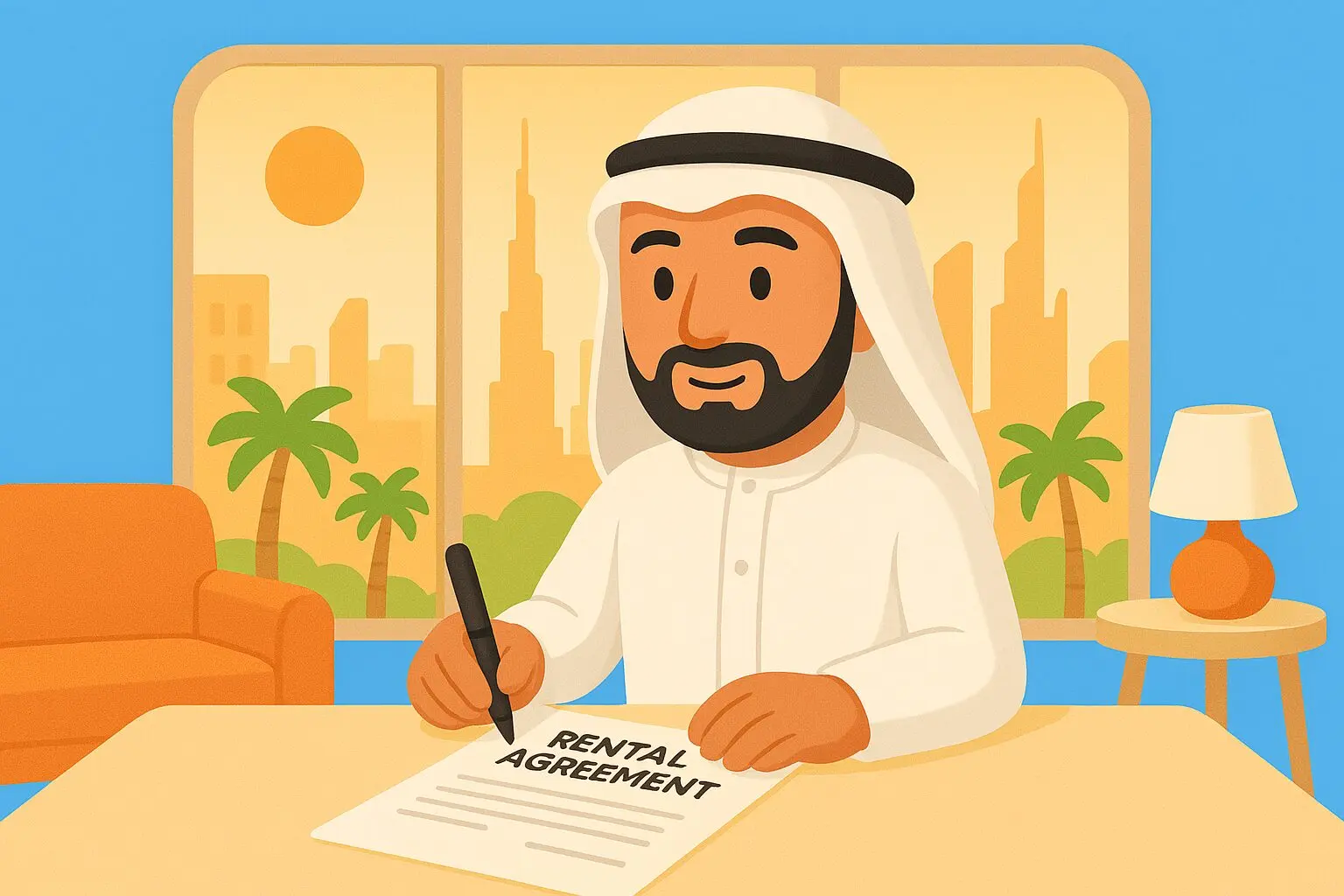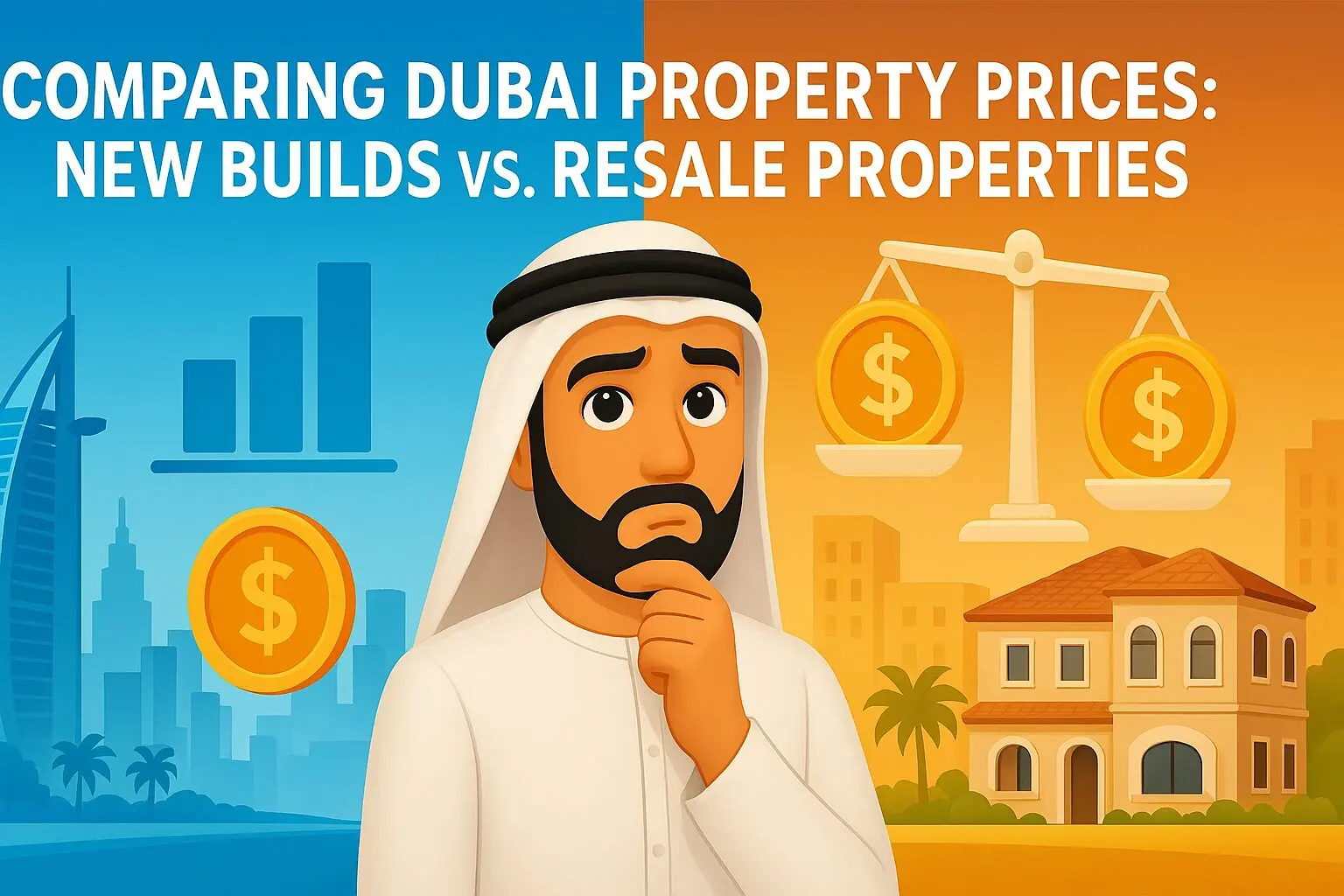Real estate investors have always been welcome in Dubai by the emirs, who have set attractive tax regulations, good infrastructure, and a constantly growing property market. Although the emirate does not impose a direct income tax on rental income obtained, landlords contend with different fees, charges, and regulations. Understanding these requirements is, therefore, essential to maximize rental income and remain within the law in the UAE.
1. Understanding Rental Income Tax Dubai
Indeed, the fact that Dubai does not impose a direct rental income tax Dubai has gone a long way toward making this city an attractive location for real estate investors. Despite this, the necessary fees and legal obligations on landlords, assumed by many to dent profitability, should still remain in rent-cost calculations.
Municipal and Federal laws are not present to govern rental income; however, other indirect costs, such as housing fees, VAT on commercial properties, and registration charges, are to be factored into the investor’s financial planning. Investors must also be compliant with regulatory frameworks that mandate the rental agreement and transaction be in accordance with government policies or Dubai landlord tax rules set by the Dubai Land Department (DLD) and Real Estate Regulatory Agency (RERA). Proper documentation and adherence to tenancy laws help avoid disputes and provide hassle-free property management; therefore, Dubai’s real estate market remains interesting to locals and foreigners alike.
2. Types of Fees Associated with Rental Income
Dubai is an attractive haven for real estate investors because there is no personal income tax in the emirate meaning there would not be individual property rental taxes Dubai. This indeed is a no-tax advantage in making Dubai a global arena for property investment. However, landlords should watch out for the indirect expenses, such as registration charges, municipality fees, and service charges, which are more or less realistic like tax.
Under the new corporate tax law of Dubai, the same would be applicable to corporate entities depending on the type of business activities and ownership structure. Though corporate tax may be applicable to companies earning rental revenue, it is due for individual landlords.
Below is the table showing tax on rental income in Dubai:
| Fee Type | Description |
| Dubai Municipality Housing Fee | Equivalent to 5% of the annual rental value, this is added to tenant utility bills. |
| Ejari Registration Fee | A fee of AED 220 for rental contract registration, ensuring legal validity. |
| DLD Fees | A 4% fee on property sales, which indirectly affects rental market pricing. |
| VAT on Commercial Property | A 5% VAT applies to commercial property rentals, which is borne by tenants. |
| Service Charges | Fees vary depending on the property type and location, covering maintenance and security costs. |
In addition to these government-imposed fees, landlords should also account for administrative costs such as brokerage commissions (typically 5% of annual rent), property maintenance expenses, and legal fees associated with tenancy disputes. For instance, maintenance costs can range from AED 500 to AED 2,000 per incident depending on the issue. Understanding these fees is crucial for landlords to plan effectively and optimize their rental revenue while ensuring compliance with Dubai’s regulations.
3. Exemptions in Property Rental Taxation: What to Know
Under certain exemptions, a landlord can either reduce his expenditures or avoid certain imposts. For example, the rental of residential properties is VAT exempt, therefore rendering it more attractive to investors than rental properties used for commercial purposes. Further, long-term leasing arrangements and properties used for government purposes, religious institutions, or diplomatic missions might apply for exemptions. Certain categories of landlords qualify for reduced municipality fees based on the type of properties they own, for instance, affordable housing. It is the responsibility of landlords to be in the know about tax benefits that they can maximize to enhance earnings. Keeping abreast of the exemptions will, in turn, assist property owners in getting better return on investment and making a profit while keeping on the right side of the Dubai real estate law.
“As Dubai moves closer to its 2040 Urban Master Plan, emphasis on sustainable urban development, transportation infrastructure, and smart city initiatives is expected to be inevitable in making the city attractive for investors and residents alike,” reads Deloitte’s 2025 Real Estate Predictions Report. Hence, it encompasses the narrative in commitment to long-term growth through sustainability and innovation.
4. VAT on Rental Income in Dubai
This distinction is essential for investors considering mixed-use properties. Residential leases are not subject to 5% VAT, whereas commercial property leases are. In the event that the property is let for both residential and commercial uses, a different method of VAT treatment may apply, depending on the incurrence of each type of use. VAT compliance is obligatory, and landlords would therefore need to issue corresponding invoices and make tax returns within the normal time frame to avoid fines from the Federal Tax Authority (FTA).
Thus, landlords leasing office space or retail space should incorporate VAT into their rental agreements with tenants while making sure that their tenants understand their tax liabilities; this understanding of VAT regulations would allow property owners to structure their rental agreements in light of avoiding unreasonable taxation burdens while maintaining legal compliance.
5. Corporate Tax in Rental Income to Businesses
In 2023, the UAE imposed a 9% corporate tax on companies with annual earnings exceeding AED 375,000. These property rental taxes Dubai could be imposed on rental income if the property is owned by a corporation or forms a part of a real estate portfolio. On the contrary, the individual landlord will only find himself spared on the income tax unless it is a company operation.
The company that owns the property will have to analyze the implication of its tax liability in consideration of corporate tax, therefore maximizing revenue. A restructuring of property ownership from time to time benefits in minimizing tax; for example, properties may be held under separate entities for each. Tax laws are complex; a sound financial adviser could assist companies in efficiently navigating the tax laws and availing themselves of the legal framework for maximum tax benefit.
6. Government Charges to Landlords
Besides paying VAT and corporate taxes, these property owners experience yet another tax burden on them by the government. The other taxes are also paid by landlords at a percentage of rental income, such as Ejari registration, DLD transfer fees, and the municipality charges. These add to landlord taxation depending on location, size, and type of property, ultimately affecting the net earnings. Furthermore, property owners leasing serviced apartments or vacation homes must pay certain taxes and fees for financial analysis in order to reasonably plan their rental pricing-which is legal in business, illegal owing to fines and fees, and lends to enhancing the financial success of the undertaking.
7. Statutory Requirements for Landlords in Dubai
In Dubai, landlords are required to comply with RERA registration on rental contracts through Ejari and property standards, focusing on maintaining reasonable rents. Though these could have implications in cases of violations of tenancy law when the ensuing penalties would hardly be far-off from tenant disputes. On the other hand, the landlord shoulders maintaining the property in good condition, its habitability, and any necessary repairs that the landlord has not been attending to in a prompt manner.
The Rental Dispute Settling Centre (RDSC) in Dubai will intervene if rental disputes arise, giving rise to common law for landlords and tenants. Hence, complete and thorough documentation of all rental contracts, maintenance records, and communications with the tenants should be kept to avoid legal conflict and establish a streamlined rental operation concerning Dubai property law.
“Dubai’s real estate sector thrives because investor confidence is high, the economy is diverse, and it has a visionary plan for long-term urban development, as anchored by a robust masterplan. The city’s economic benefits draw expatriates and tourists as they helped to bring about major infrastructure projects that position Dubai into one of the dynamisms. This would have to be listed among the best real estate market locations worldwide.”
Oliver Morgan Partner Deloitte Middle East
Thus we had Dubai as an investment accent on the international horizon with its progressive policies and economic fundamentals.
8. Foreign Ownership and Taxation on Expat Properties
According to the freehold law governing property in Dubai, property can be owned by foreign investors in designated zones. While rental income may not be taxed, there are tax obligations as per the Dubai landlord tax rules that may arise under expatriates’ home countries, especially for a landlord from a particular country. Taxation in these matters should be left to a professional adviser and for expatriates with international real estate holdings.
For example, the UK and the USA may require declarations from their residents concerning overseas rental income, which will most probably be taxed. In order to ensure that taxation will not be over-paid, it is important for expatriates to understand any international tax treaties and double taxation agreements. Tax planning can thus be used to optimize rental income in Dubai and in their home countries.
9. Tenant Rights and Responsibilities
An occupant of a property in Dubai should have a place to live that is habitable, complete with health and safety standards, wherein the landlord must ensure that all essentials, such as electricity, water and an air conditioning service are running all the time. The Rental Law of Dubai was established to bring observable justice to tenants with regard to unjustified rent increases, without notice of eviction, and for the most part, poorly written terms in the contracts all payers. Hence, they will have to keep their rents up to date, follow fire regulations of the landlord, and maintain rented units. Any dispute can be referred to the Rental Dispute Settlement Center (RDSC). Both parties should know each one of their rights and obligations to form transparent yet fair rental agreements.
10. Short-Term Rentals and Holiday Homes
Short-term rentals serviced Dubai – a field that has become a bubbling industry more than anything boosted by the temporary demands coming from tours, shows, and business class. Licensing approved through Dubai Tourism and Commerce Marketing (DTCM) is also a valuable tool for a landlord wanting to rent out short-term property that sets the standard for quality, monitoring, and pricing. Generally classified under short-term rentals, affected by tourism fee applicable to Dubai landlord tax rules, markups, occupancy, and income share are potential tenants.
Therefore, the gains are substantial but require a great deal of workflow regarding tenant turns, maintenance fees, and adherence to the tourism right. Good monetary representation should be pursued by agents owing to the number of units built. Whether renting through Airbnb or any other way, owners should ensure that every booking observes the new short-term rental laws in Dubai-well to maximize earnings while avoiding legal upset on the movable feast of law.
11. Real Estate Investment Trusts (REITs) and Tax Efficiency
Investing in Real Estate Investment Trusts (REITs) is a brand-new way of passive rental income in Dubai without the hassle of property management. A REIT stands for pooling of funds from multiple investors to acquire and manage income-producing properties, making it a diversified investment and tax-efficient. It means that rent income will roll in directly without the headache of upkeep, tenants, or different government levies pertinent to the real property way of owning any estate. Furthermore, as Dubai does not have any capital gains or property rental taxes Dubai, investing in REIT turns out to be a lucrative venture. However, attention should be paid to management fees, market volatility, and dividend payouts since they will have a direct impact on the returns. For those very pragmatic investors hunting for sustaining returns with the minimum risk associated with real estate, REITs within Dubai offer one of the most sensible investment options, still bearing the fiscal benefits of Dubai’s tax policy.
12. The Dubai Land Department’s (DLD) Fee for Rental Transactions
Various fees are levied by the Dubai Land Department (DLD) concerning leasing transactions that affect both landlords and tenants. The most important requirement is the registration fee for Ejari at AED220, necessary for any rental contract to have legal standing, as mandated by the DLD. Also, landlords have to pay for rental management whenever they make new tenancy contracts. Besides, when a property is sold, it places the onus of paying the 4% DLD transfer fee on the new owner, which indirectly impacts rental prices.
Additionally, there are renewal and modification fees in regard to commercial leases, which eventually serve to load the total transaction costs on the shoulders of landlords and tenants even further. While these fees increase leasing costs, they provide some regulation for the real estate market regarding transparency and tenant protection. Proper disclosure of DLD fees lays the foundation for the formulation of rental rates and long-term analysis for investors.
Conclusion
There are no direct income taxes levied on rental properties regarding income generated from rent collection, and thus the Dubai rental market continues to remain among the world’s most attractive. A range of other fees that the government would impose must also be considered: commercial property VAT, property corporate tax if that business legally defined as being incorporated, etc.
Familiarizing oneself with these will help investors maximize profit of investing in full compliance with the laws. Either way: for a local or expatriate investor, it would be good to have knowledge about the shifting tax terrain of Dubai making rental operations beneficial beyond doubt and quite firm in respect of legality.
FAQs
No, there is no rental income tax Dubai on an individual’s rental income, whereas companies pay a corporate tax of 9% on profits that exceed AED 375,000.
Municipality fees are paid by tenants for rental accommodation charges; landlords do not pay them directly.
Holding properties personally avoids the corporate tax.







